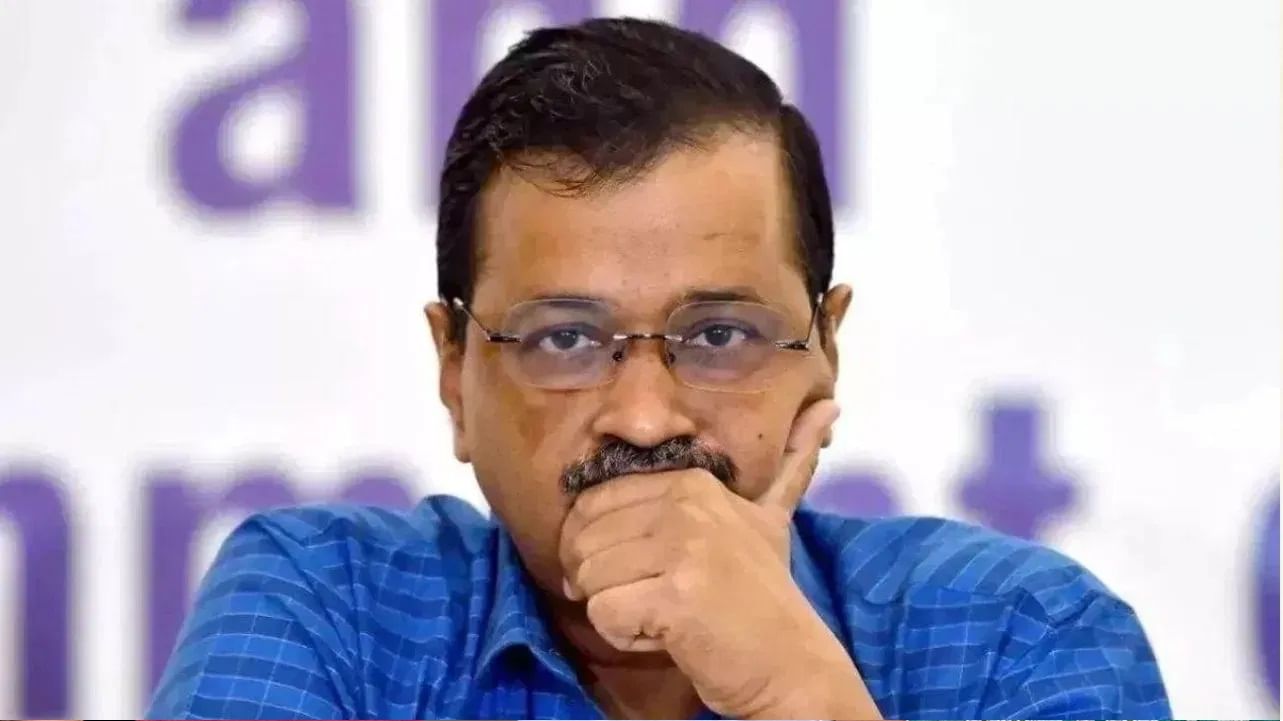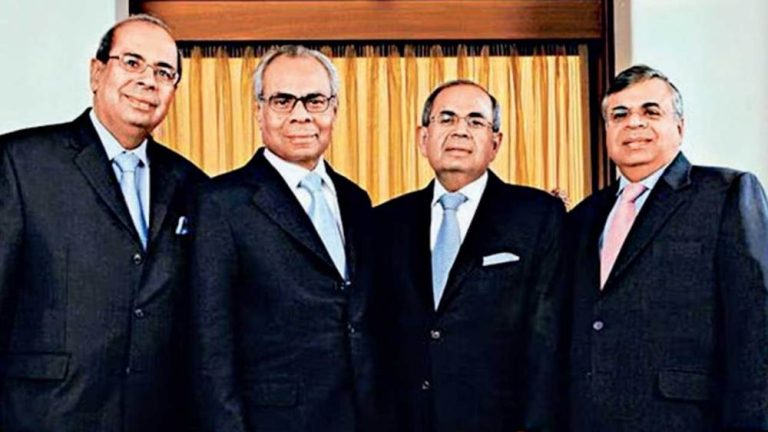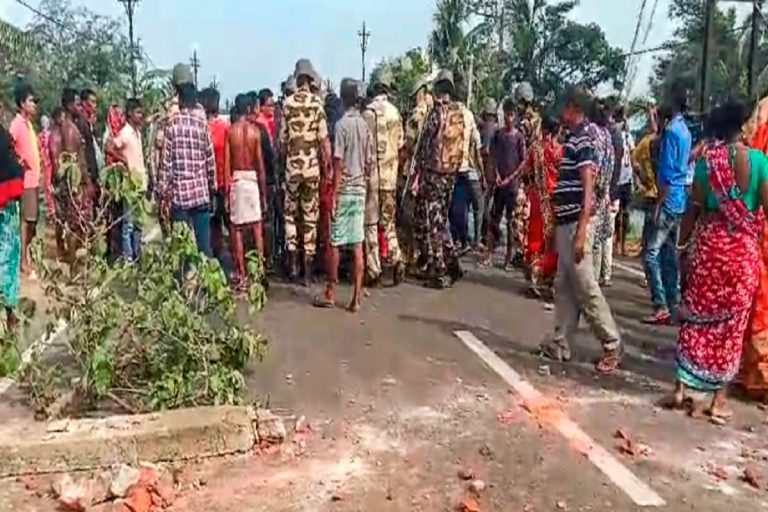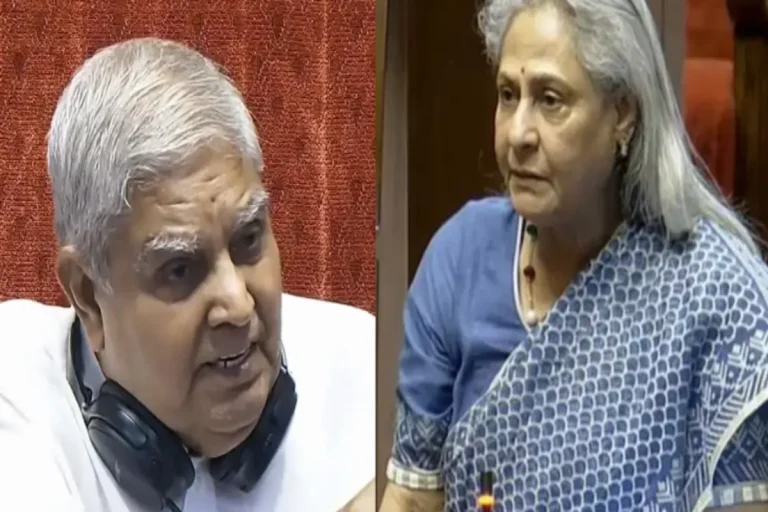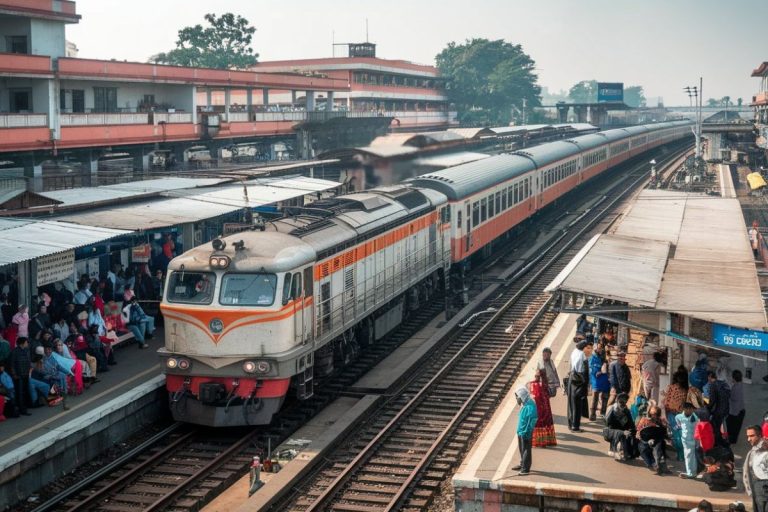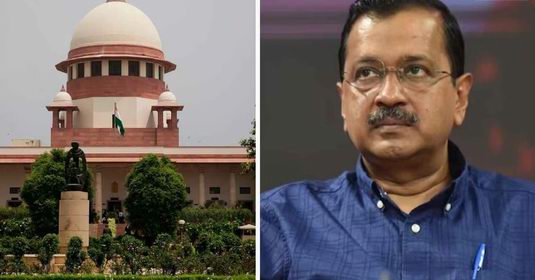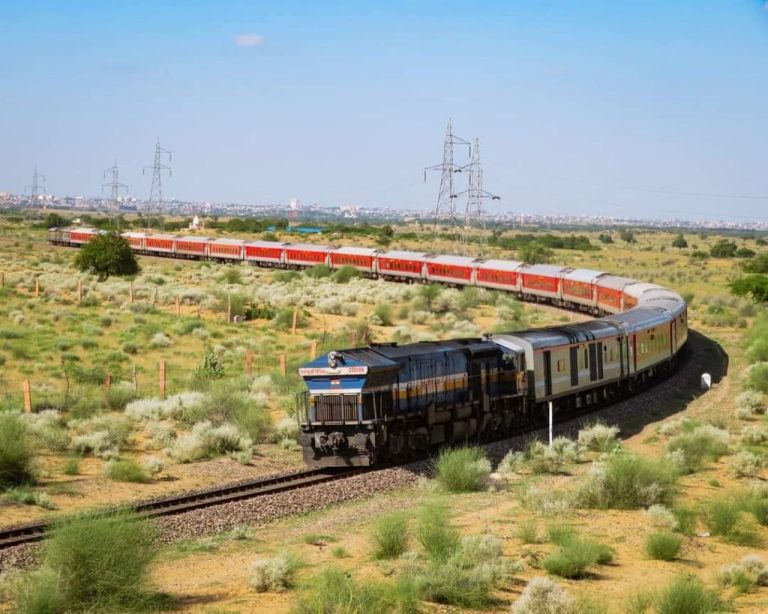Now see you on Tuesday… What did Supreme Court say on Arvind Kejriwal's bail plea?
The Supreme Court on Thursday deferred its verdict on chief minister Arvind Kejriwal's plea against bail and arrest in the CBI case in the Delhi liquor scam case. The court said that if any party wants to submit written arguments, they can submit them till Saturday. See you on Tuesday. The court is likely to give a verdict in the case next week. Let us know what arguments both sides (Arvind Kejriwal and CBI) put forward during the trial and what the court said. As the hearing began in a bench comprising Justice Surya Kanth and Justice Ujjal Bhuyan, lawyer Abhishek Manu Singhvi, appearing for Kejriwal, said that there is a provision for double jeopardy under the PMLA. Singhvi said that despite these strict rules, two decisions have been taken in our favour. It cited two regular bail orders, one from the lower court and the other from the Supreme Court. Apart from this, Singhvi made several arguments and gave information to the court about various timelines, i.e. when and what happened. Singhvi mentioned August 2022 to April 2023. Singhvi said the CBI arrested Kejriwal in the case two years later. This is an insurance arrest as he has not been arrested for two years. The arrest was made to put Kejriwal in jail. Singhvi informed the court about the interim bail order in the money laundering case and after the interim bail in the enforcement case ended, Kejriwal went back to jail on June 2. Singhvi had on June 20 received regular bail from the lower court in the ED case. Subsequently, the High Court stayed the order of the lower court. However, the Supreme Court granted interim bail in the PMLA case and referred certain issues to a larger bench. No one has been arrested by the CBI in the last two years. On June 26, Kejriwal was arrested by the CBI. That too was based on January's reports. Referring to those reports, he said the CBI had no new evidence other than Manguta Reddy's statement from January. He said the CBI had arrested Kejriwal on the grounds that he was not cooperating with the investigation. While granting interim bail in the Enforcement Directorate case, Singhvi told the court that the Supreme Court had also criticized the manner in which he was arrested. It was first held that arrests cannot be made arbitrarily, at the discretion of the authorities. Second- Arrest of the accused cannot be done only for investigation. Third – Investigating officers cannot be allowed to pick and choose the material available to the person to be arrested. The agency should pay equal attention to other matters that could exonerate the accused. Raising questions about the arrest, Singhvi said such arrests are made when the investigation is likely to be affected but here Kejriwal is in jail. Why make an arrest now when no arrests have been made in two years of investigation? No one can be arrested suddenly without any basis. He said the CBI has applied to the court for investigation and inquiry under Section 41-A of CrPC. This is proof that CBI did not want to arrest Kejriwal in the first place. Kejriwal's lawyer said the CBI only wants to make an insurance arrest in the case. He has no new ground. Singhvi said that the conditions for the triple exam are favorable for him. ED has filed 9 chargesheets in liquor policy scam and CBI has filed 5 chargesheets in this case. He said there is no flight risk with me. There is no risk of tampering with evidence or influencing witnesses. So the bail conditions are in my favour. Do common people get that much time? A question is whether Justice Surya Kant should hear the bail case for so long during the hearing of this case. Do common people get that much time? But the ASG, appearing for the CBI in the case, said the agency should be given the same amount of time while the petitioner presents its arguments. Singhvi said the CBI called Kejriwal as a witness in 2023. The Election Conduct Rules came into force in March this year. He was later arrested in June. On May 10 this year, the Supreme Court released him on interim bail. The trial court granted bail in June. Then what is the need to arrest? Why was the CBI in such a hurry to make an arrest? However, the lower court granted him bail in June. He asked what had happened during the three months in custody. Singhvi said the lower court said the timing of the arrest was a bit odd. That triple test is completely satisfying. Apart from one in the present case, Sisodia, K. Kavita, Buchi Babu and Vijay Nair have got bail. He said the court cannot now remand him on bail to the trial court as doing so would be an attempt to delay the case. Objecting to Singhvi's plea, the ASG said, “Is he arguing for bail or arrest?” He said there are preliminary objections to this. He cannot mix the two cases. But Singhvi opposed this argument and said that he should be allowed to finish his argument. Kejriwal poses no threat to society, 'bail is an exception' This Supreme Court ruling applies to ED and CBI cases as well. The same applies to Kejriwal. Concluding his argument, Singhvi said that bail was not granted despite several orders for release in the thrice trial case. Either way, Kejriwal is no threat to society. Nor is he a terrible criminal. While getting bail, he will cooperate during the trial and when called by the court, he will appear on the orders of the court. After Singhvi's arguments were over, ASG SV Raju argued on behalf of the CBI against Kejriwal's plea. SV Raju read the Delhi High Court order rejecting Kejriwal's bail plea in the court. Said K. In the Kavitha case, the Supreme Court asked the lower court to seek bail, while Kejriwal's arrest was also challenged in the ED case. In that case also he was sent back to the trial court. In such a situation, Kejriwal is not an unusual person who needs to adopt a different approach. The court said it will decide whether to intervene in the matter or not. The court said this when the CBI said that Kejriwal had filed his bail petition directly in the High Court instead of filing it in the lower court. The ASG said the arrest and bail results were announced simultaneously. The High Court is overburdened. When such cases arise, their entire group becomes disorganized. The hearing of the case took place on a holiday as he was privileged. At the same time, the Supreme Court questioned the Delhi High Court's decision to send Kejriwal's bail to the lower court without hearing it, saying that instead of sending someone back, the High Court should have conducted a detailed inquiry into the matter. The ASG said that every common man should first go to the lower court for bail. This is not a sudden decision of the High Court. He was given a notice. Justice Surya Kant said that the High Court can decide on this matter as the High Court can decide on matters related to life and liberty. Raising questions on this, the ASG said that because one is influential, one can play the snake and ladder game, which should happen to common people too. As every common man first has to go to the lower court for bail, they also have to go to the lower court. He said when such senior advocates appear, the High Court cannot tell them to go to the lower court. So notice was given to him. As far as arrest is concerned, the ASG said that arrest is also a part of investigation because if the agency has the right to investigate, it also has the right to arrest. The Court has granted my leave to the Court in respect of this matter. The court has given me the right. Hence Section 41 is not applicable here. However, before rising for lunch, the court asked Raju to finish his arguments in half an hour. Raju says that he needs more time. During the post-lunch hearing, SV Raju said that 36 pages of documents have been received from the accused and the South Government team. In this, Kejriwal had approved the liquor policy on April 15. That too happened when covid was at its peak. A.S.G. said that Rs 44.54 crore was sent from Delhi to Goa through hawala. AAP used it in Goa elections. Dinesh Arora confirmed this as well. The ASG told the court after the lower court read the CBI application seeking Kejriwal's arrest. The application mentioned how the liquor policy was approved at the peak of Covid. Also, about Rs 45 crore was sent from Delhi to Goa for election campaign. The ASG told the court that Kejriwal is yet to challenge the lower court order allowing his arrest. The lower court accepted our application. After that a warrant was issued and after that we arrested him. Kejriwal's fundamental rights were not violated in any way when he was arrested. Due process of law was followed for arrest. Kejriwal was in custody in the ED case. He was arrested in a CBI case with court permission. He said the reasons for the arrest were also in his affidavit. On the day of arrest, the accused was given remand copy. Although this is not required. That person can be arrested. We had the right to go directly and arrest him, but we went the other way. This is due to his non-cooperation with the investigation. He misled the agency. We have no absolute prohibition on arresting anyone. The CBI also opposed Kejriwal's interim bail. Arguing on the charge sheet, the ASG said that Arvind Kejriwal should have filed regular bail if the charge sheet had been filed, as everything was contained in the charge sheet against him. At the same time, the lower court took up the charge sheet against Arvind. That means the lower court believes there is prima facie evidence against Kejriwal. The ASG said some chargesheets may affect bail. Like assaulting witnesses. All these are recorded in our answer. Punjab has an angle in this liquor scam case. Mahadev Liquor had a wholesale license. He is not ready to pay bribe. So his liquor plant was closed. Once he handed over the license, he was allowed to run a liquor plant. Hearing bilateral arguments, the court said that the written arguments should be submitted in the next 2 days. We will meet on Tuesday now.
